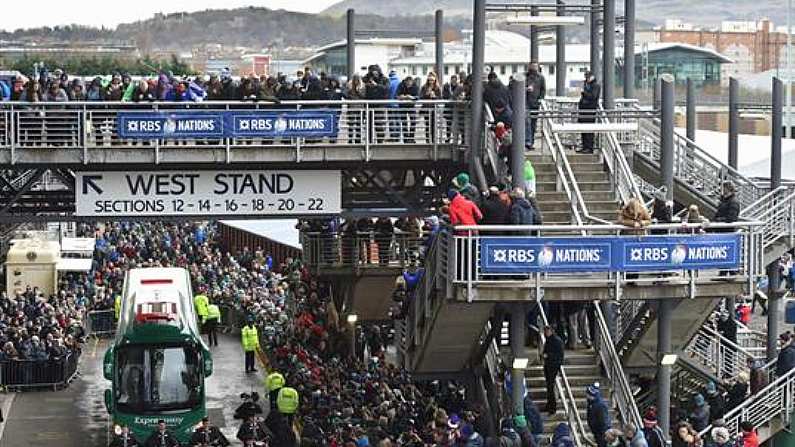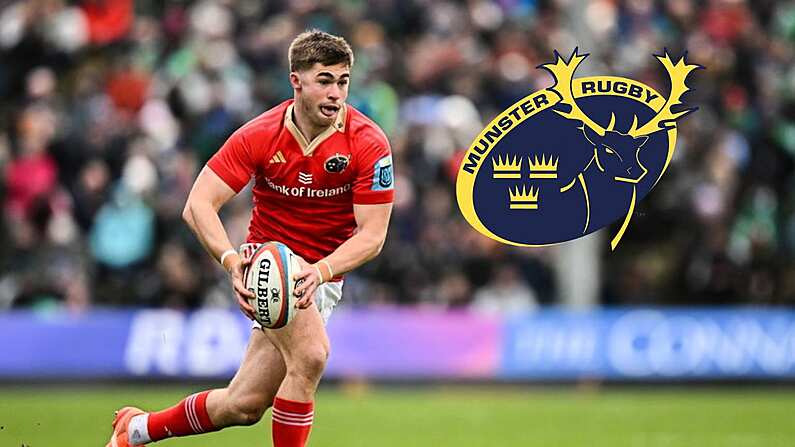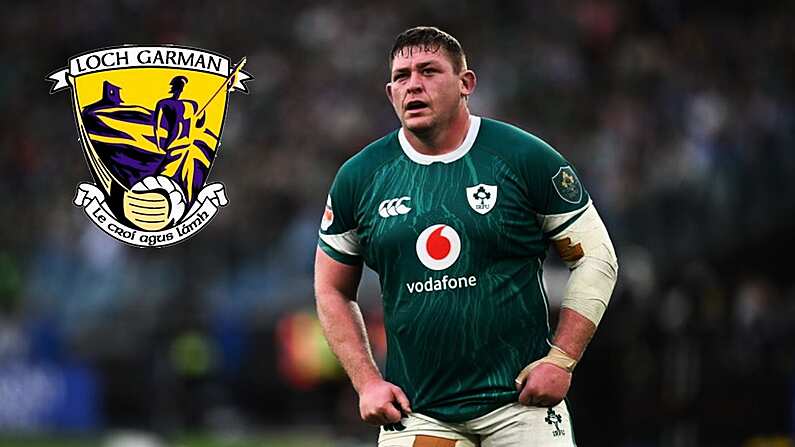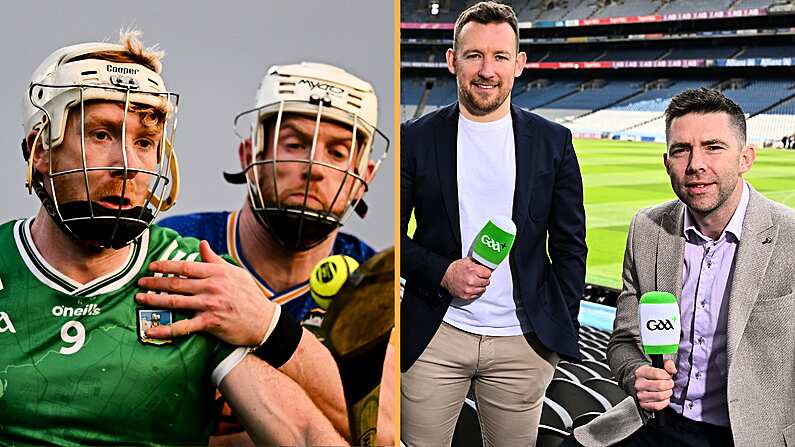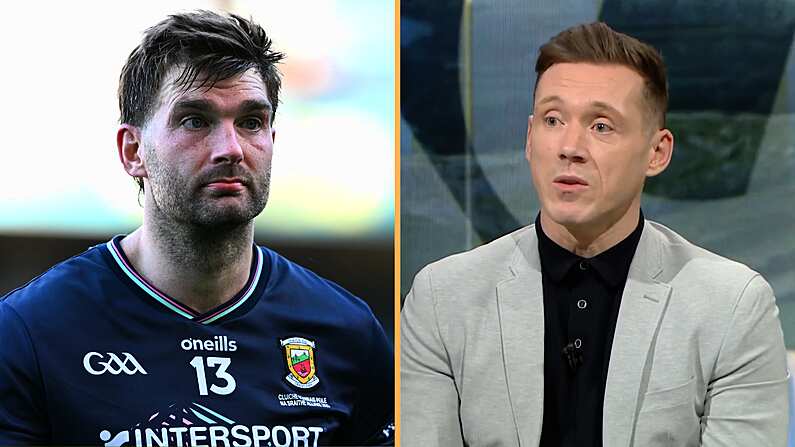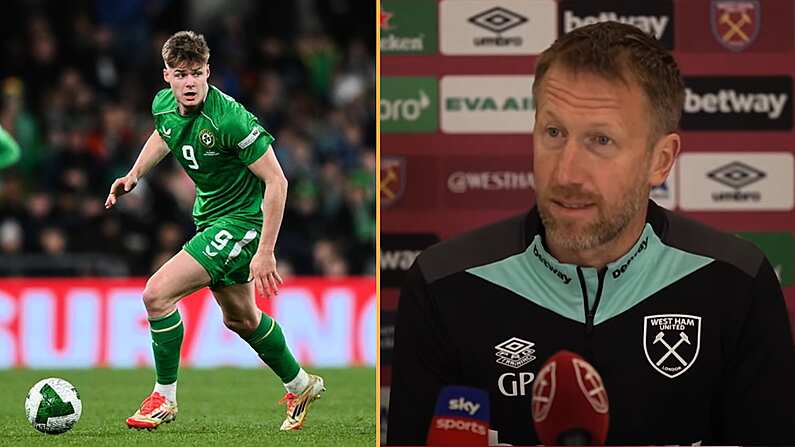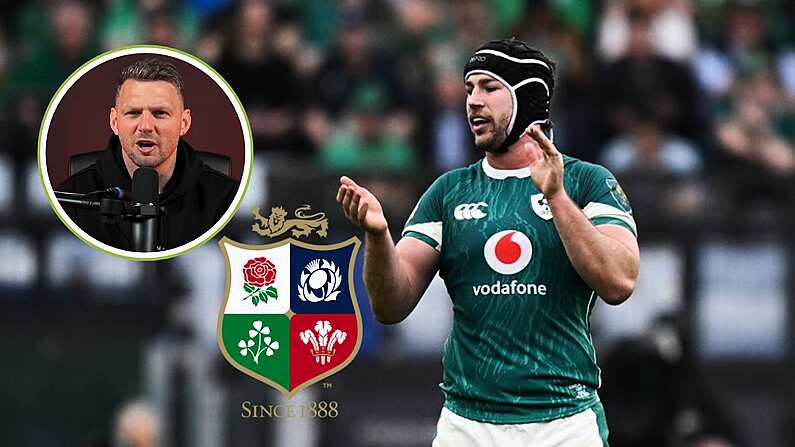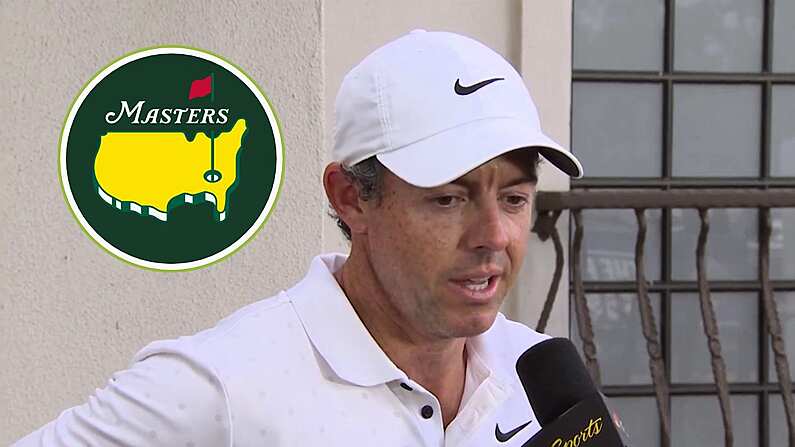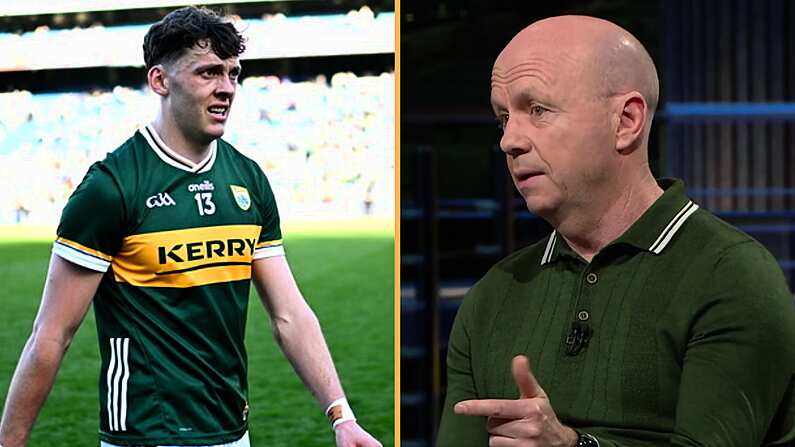When reflecting on Ireland's loss in Murrayfield on Saturday, Joe Schmidt casually - but some say, pointedly - mentioned that the team bus was 15 minutes late in arriving at the ground.
It was later confirmed to RTE that the Scottish police escort had taken them on an "alternative route" to the stadium. Once they arrived, a pipe band had begun a procession onto the pitch, leaving them twiddling their thumbs for a bit longer. (Suddenly one feels a kinship with Clive Woodward who had long complained about the excessive pre-match hoopla at Murrayfield).
That Schmidt saw fit to mention it all predictably got George Hook in a lather. The former RTE pundit, now delivering his verdict on Newstalk, interpreted it as an excuse.
It's far from the first bus-related mishap in Irish sport. Before the 2008 All-Ireland hurling final, the Waterford bus driver took a wrong turn when pulling in underneath the Cusack Stand.
He was supposed to turn right and stop his vehicle near the changing rooms. Instead, he turned left and clipped off the wall adjacent to referee's tunnel, aka, the one that sits at the corner of the Cusack Stand and the Canal End. The entrance is very narrow and it is nearly impossible to maneuver out of that position.
The bus sat trapped there for 15 minutes, with the players inside growing steadily more restless and bemused. After a while, they became fed up and simply abandoned the bus, walking the rest of the way.
It might be pushing it to say this explained away a 23-point loss against the best team of all time, then at the absolute peak of their powers. But the tale now forms part of the Croke Park tour (dependent of course on your tour guide), and they remind of how such mishaps can unsettle and undermine a team's preparation.
Nor was Saturday's incident the worst bus related mishap in Irish rugby. That occurred on 6 May 1995, a day when the Irish rugby team made history.
In 1991, Ireland did their bit for the expansion of rugby's frontiers by losing twice to Namibia. Four years later, they became the first of the top eight nations to lose to Italy. The match was a pre-World Cup warm up in Treviso.
At least on the latter occasion, they were able to offer up excuses. As Brendan Fanning detailed in From There To Here, his account of Irish rugby's unexpected transformation in the professional era, the dastardly Italians decided to sabotage Ireland's preparations.
Once they arrived in Treviso the day before the match, a training pitch had been laid on for them. This was remembered as a 'farmer's field' which made the Saipan car park look playable. The training session was abandoned before any of the players were injured by the potholes.
The japes continued on the day of the game. Fanning takes up the story.
Kick off the next day was in the early evening. The bus was due to collect them at five. At. 5.05 Noel Murphy was already anxious. By 5.20 his blood pressure was rising. By 5.30 the taxis he had called at 5.10 still hadn't showed. So he risked life and limb and set about trying to flag down any passing bus. As it happened, that strip was a haunt for prostitutes, so motorists wouldn't have known what to make of an excited man in a green blazer waving a fistful of cash.
The team arrived at the ground with less than 40 minutes to go to kick-off. English referee Tony Spreadbury saw no reason the delay the match.
Ireland, without Simon Geoghegan and Neil Francis, lost 22-12. Full back Paolo Vaccari scored the only try of the match.
Happily, the players weren't too discommoded by the loss. The session afterwards eased whatever pain they were feeling. With victory achieved, the Italians suddenly became far more hospitable and Guinness had laid on a barrel of stout. The IRFU blazers were dismayed by the size of the bill the next day. Fanning records coming down for breakfast the next day and seeing 'Noisy' and secretary Philip Browne remonstrating with bar-staff over the bill. The latter suggested hopefully that the press might have run it up. The bar staff made clear it was all down to the players.
The pre-match shenanigans were sufficiently memorable that when Leinster were drawn to play in Milan in their first ever Heineken Cup tie six months later, coach Jim Glennon travelled to Italy a fortnight in advance to do a recce on the training ground and sort out the logistics.
Winger Niall Woods, who scored a late winning try in Milan, told Balls.ie that it was more less accepted that the Italians had deliberately hindered Ireland's preparations.
"The Italians conspired allegedly that the team bus never arrived to bring Ireland to the match and so Jim Glennon had to go out and do a recce beforehand," he recalled for an article on the first Leinster team ever to compete in a Heineken Cup match.
This type of home team skulduggery was far from uncommon then. For instance, away teams playing in the USSR had to contend with the scourge of 'Moscow Tummy', a strange affliction which often befell those visiting sportsmen who made the mistake of eating food prepared by the local chefs. This effects of this disease were roughly analogous to diarrhea.
Irish football Eoin Hand recalled the FAI being rather blase and relaxed about the threat posed by Moscow Tummy. A chef was regarded as an indispensable part of the entourage of any international team travelling to Russia in those years. The FAI decided to trust the locals.
Eoin Hand was less trusting and decided to bring his own chef. Which turned out to be his wife. She cooked for the players for free ahead of a 1985 qualifying game.
Late at night on the eve of the game a few blazers caught a whiff of the smell and came looking for some grub. Hand told them to piss off.

